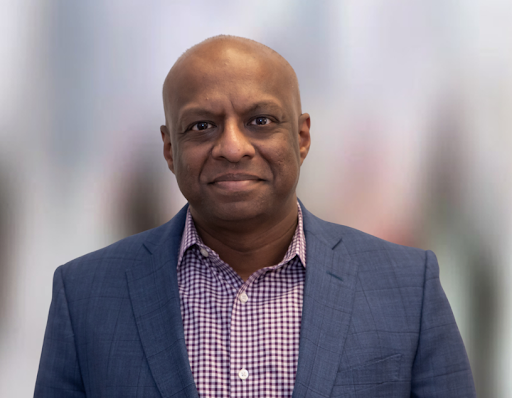Expert Kishore Siva Breaks Down The Misconceptions On Franchise Models That Hold Many Entrepreneurs Back

The franchise model can be a very lucrative strategy for many aspiring entrepreneurs. However, one major misconception continues to block countless would-be business owners from pursuing it: the idea that franchising is an industry. It's not. It's a business model, a framework that can be applied across a wide range of sectors, geographies, and business types. And according to Kishore Siva, founder and Managing Director of Helios Franchise Advisors and a former corporate banker turned franchise consultant, that single misconception has splintered into many others that continue to mislead the public.
"Franchising is not a specific industry. It's a business model," says Kishore. "That distinction matters, and clearing it up could open the door for thousands of new entrepreneurs."
As someone who spent over 25 years in global banking before becoming a franchise owner himself, Kishore has seen firsthand how people misunderstand the path to business ownership. Now, he's on a mission to change that narrative.

When most people hear 'franchise,' they think of golden arches, sandwich counters, and coffee cups, one of the major myths. "If you asked me ten years ago about franchising, I would have thought about all the major food chain brands," Kishore admits. "But they've overshadowed the wider world of franchise opportunities."
In reality, franchising spans a vast array of industries, from senior care, fitness, and education to home services, technology, and pet care. Limiting one's perception to food brands is like thinking the only way to be in tech is to work for one of the big tech companies. "That mindset shuts people off from opportunities they never even explore," Kishore says.
Franchising may skip the guesswork of building a business from scratch, but it's not a get-rich-quick scheme. "One of the most dangerous myths is passive ownership," Kishore explains. "The idea that you just invest, step back, and let the cash flow in is deeply misleading and risky."
While some mature owners might operate in an 'executive model,' acting more like chairpersons, Kishore warns against any brand marketing itself as truly passive. "If your manager quits or your systems break down, guess who's stepping in? You. You're the owner," he says. Unlike stocks or real estate, franchises are not passive investments. They require leadership, accountability, and active decision-making, especially in the early stages.
The renowned big franchise entry fee, often cited to be in the millions range, has become a false benchmark for all franchise opportunities. That misconception discourages many people from even looking into the model. "In reality, there are strong franchise models with initial investment in the low six figures," Kishore says. "Sometimes even in the five figures."
Kishore emphasizes that what one is buying into isn't a building. It's infrastructure. "You're paying for the brand, the proprietary systems, the mentorship, and the years of experience that you don't have to learn the hard way," he states.
Another myth that Kishore aims to debunk is that franchising is not synonymous with storefronts. "One of the biggest evolutions in the space is the rise of home-based franchises," Kishore notes. "COVID accelerated the trend, but technology made it inevitable." From consulting services to digital education platforms, many franchisees now work from home using proprietary tools and assigned territories. These models drastically lower overhead, making business ownership even more accessible.
But the most common and limiting myth of all is that one needs experience in that specific industry. "I've had candidates say: 'I've never worked in senior care or education.' But the most successful franchisees in those industries often didn't come from that background," Kishore says. Franchise brands typically don't want subject matter experts. They want people who can lead teams, follow systems, and drive business. "Sometimes, experts want to override the model. That's not what the franchise system is built for," he adds. It's more about transferable skills of leadership, communication, and organization, rather than deep domain expertise.
After decades in the corporate world, including stints in New York and London, Kishore transitioned to entrepreneurship by becoming a franchisee of a tech consulting brand. That shift sparked something deeper. "What I loved in my banking career was mentoring people through their next career move," he says. "Now, I get to do that for people exploring business ownership."
Through Helios Franchise Advisors, Kishore and his sister and partner, Saila Siva, help candidates assess their goals, budget, skills, and aspirations. They match them with vetted franchise brands, guide them through the discovery process, and help them make informed decisions. "We don't charge our clients. We're paid by the brands if a candidate moves forward. So we act like executive recruiters. Our job is to match the right person with the right opportunity," Kishore states.
Through a structured process of consultation, brand research, and coaching, Helios helps candidates vet potential franchises thoroughly, from financials to franchise disclosure documents, before making any commitment. "The world of franchising can seem overwhelming," Kishore admits. "But the more someone understands their options and how those align with their goals, the better their chances of long-term success."
And ultimately, that's what drives him. He remarks: "I want to truly educate people with the facts, such as franchising isn't just fast food. It's not just for the wealthy. And it's not easy, but it is possible. With the right support and the right mindset, it can change your life."
© Copyright IBTimes 2024. All rights reserved.




















